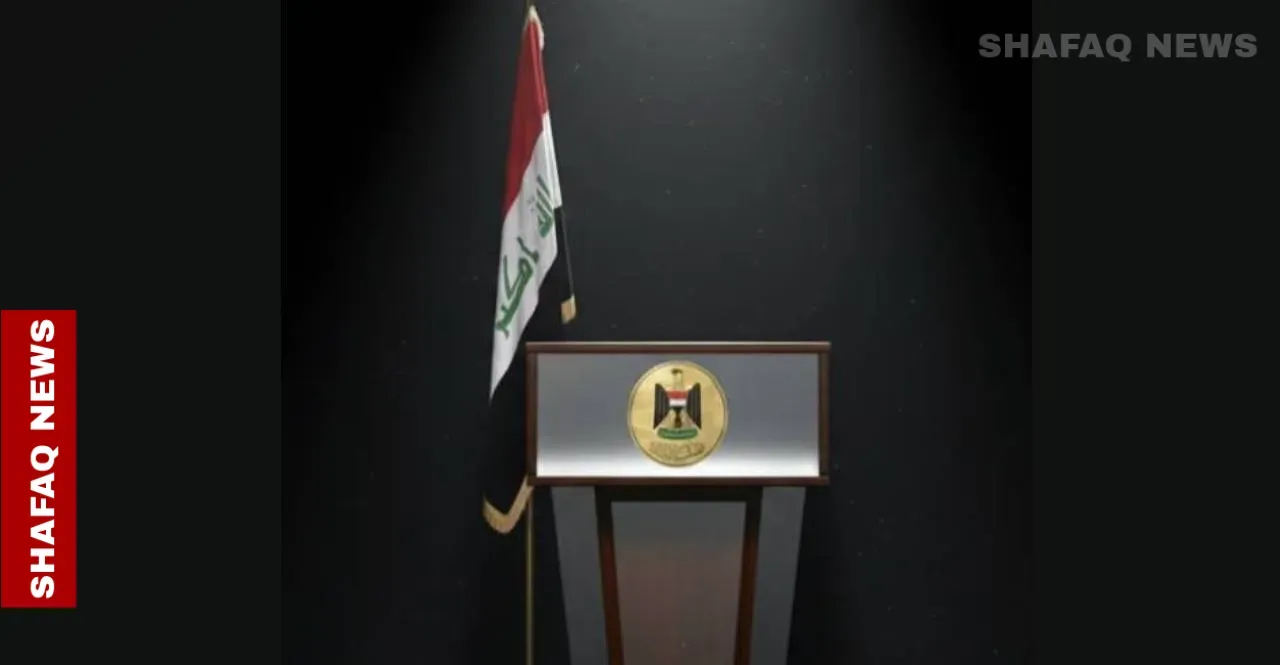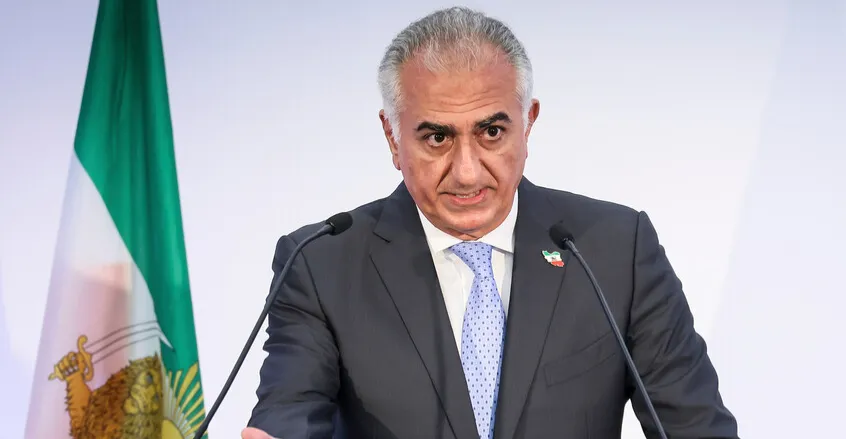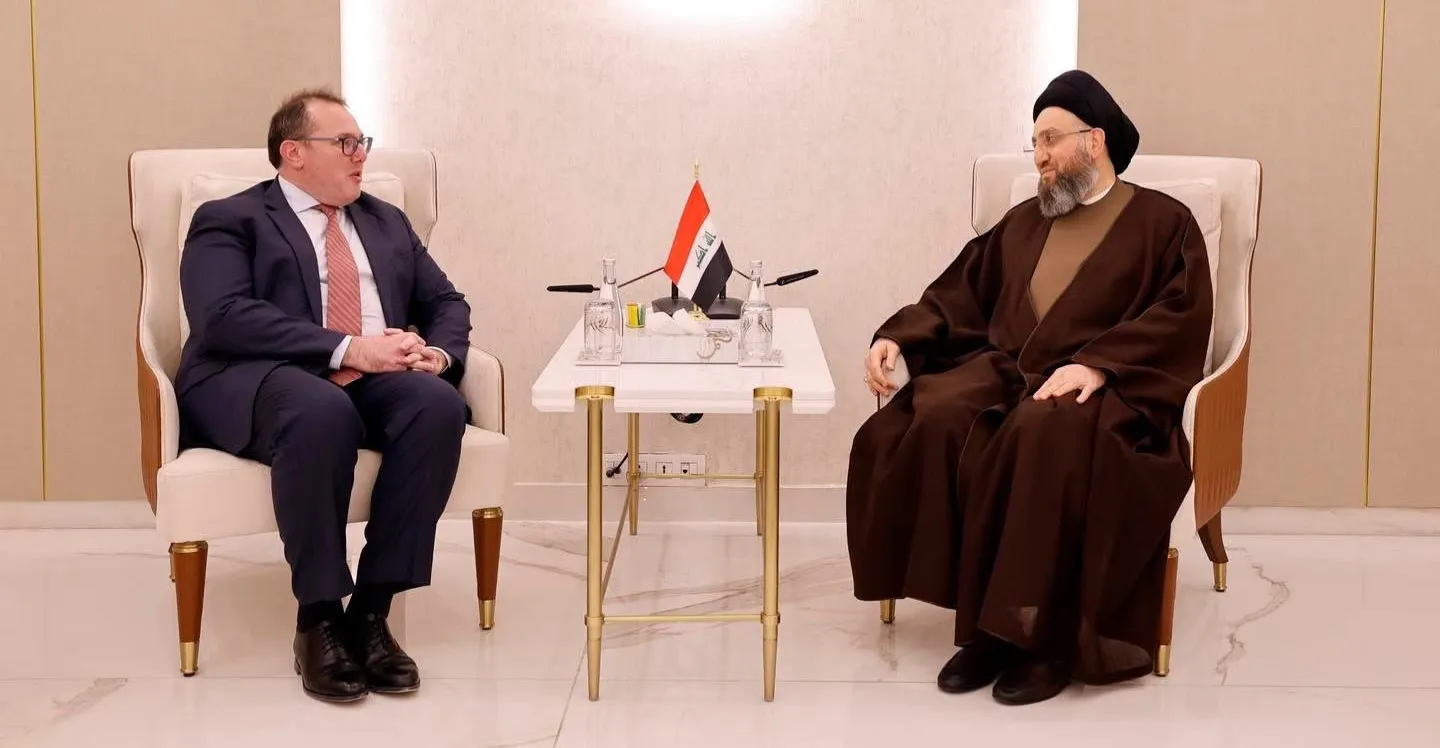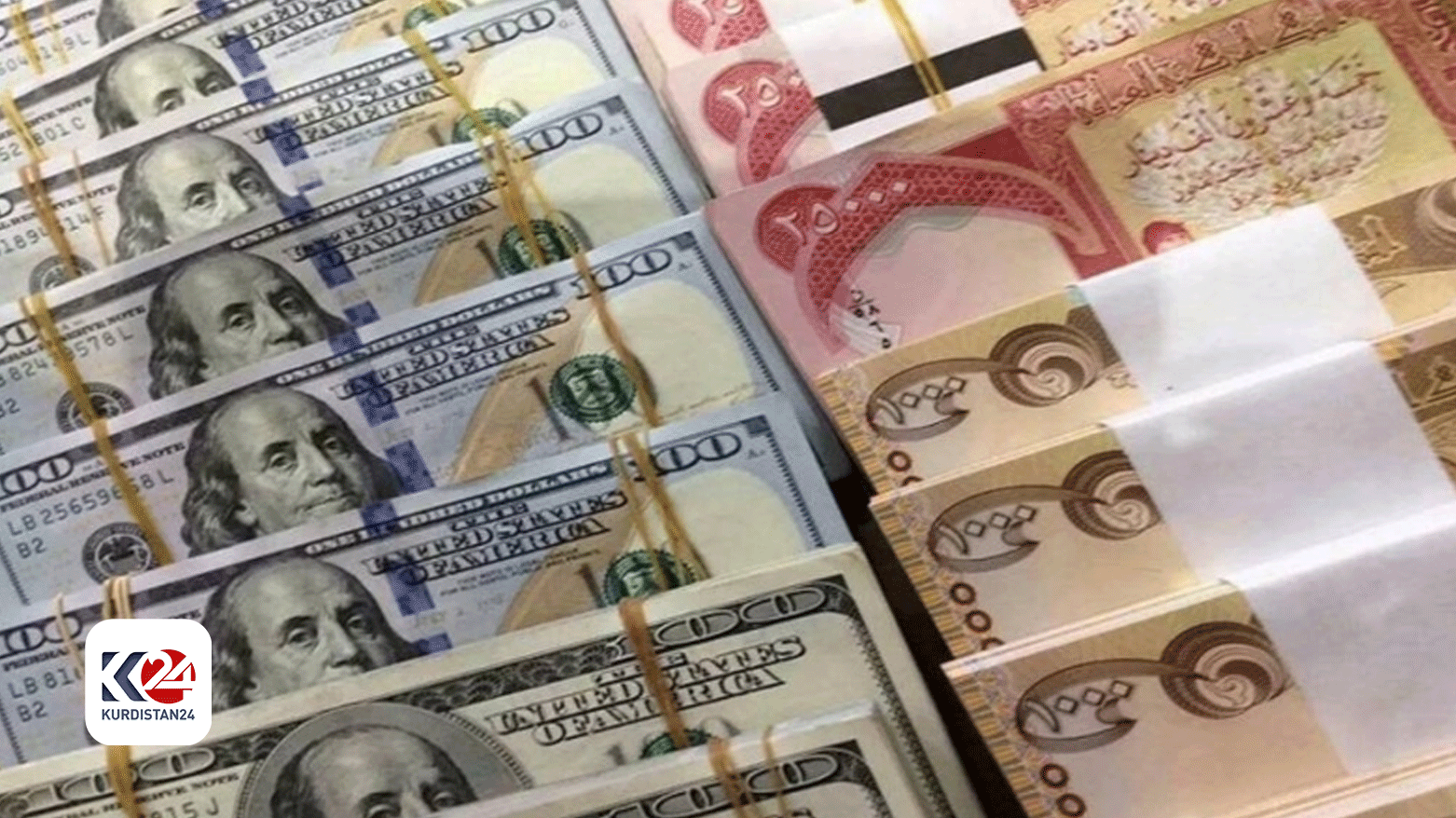A US report calls on Washington to focus on Iraqi politics, not “leaders”.
A US report calls on Washington to focus on Iraqi politics, not “leaders”.
 The Atlantic Council called on the United States to focus its Iraq policy not on individuals and leaders, but on strengthening institutional processes, arguing that although outgoing Prime Minister Mohammed Shia al-Sudani appears to be “the safest option,” this perspective conflates personal leadership qualities with the deeper structural problems that have historically plagued Iraq.
The Atlantic Council called on the United States to focus its Iraq policy not on individuals and leaders, but on strengthening institutional processes, arguing that although outgoing Prime Minister Mohammed Shia al-Sudani appears to be “the safest option,” this perspective conflates personal leadership qualities with the deeper structural problems that have historically plagued Iraq.
After the American Institute said in a report translated by Shafaq News Agency that it is still uncertain whether Al-Sudani will get another government mandate, it explained that the government coalition talks will not only lead to the formation of the next government, but will also contribute to determining Iraq’s direction towards future challenges.
Between Maliki and Sudanese
The US report said that many in Washington believe that al-Sudani is different from Nouri al-Maliki, the only prime minister to have served two terms in the post-Saddam Hussein era, adding that this “assumption is both comfortable and misleading.”
He went on to say that al-Sudani is often seen as focusing more on technical issues and causing less division, while leading a more stable country than before, a situation that suggests he is “the safest option,” suggesting that al-Sudani will continue to work with Washington on critical issues related to reform and the disarmament of militias in the next four years.
However, he pointed out that this view “confuses personal leadership qualities with the deeper structural problems that have plagued Iraq historically,” explaining that political elites view the state as a source of rewards, and therefore, in such a political landscape, a single leader who remains in power for a long time can turn temporary power into permanent control, noting that even competent leaders can weaken institutions if they remain for a second term.
Therefore, the American report considered that the main issue for the stability of Iraq is not whether al-Sudani is like al-Maliki, but whether the Iraqi political system allows for real competition, adding that the losing forces should be able to return to power through elections and negotiation, and that rivals can continue to compete within the system itself, rather than seeking power elsewhere.
He stressed that this form of competition is important for Iraq’s security, not just its democracy, explaining that political elites used ministries and agencies not only for political action, but also to manage alliances by distributing jobs, contracts, and security positions. He clarified that prime ministers like Haider al-Abadi, Adel Abdul Mahdi, and Mustafa al-Kadhimi were not “aggressive” enough and lost power, but despite that, they left the country more stable than their predecessors.
In comparison, the report said that “leaders who treated the state as ‘spoils of war’ and built strong patronage networks, such as Nouri al-Maliki, served longer,” noting that Iraqi prime ministers are often seen as pragmatic in their first term, as they assume office through a quota-sharing deal that divides ministries and top posts across blocs. It added that “under these constraints, prime ministers tend during their first term to minimize immediate friction between competing power centers and prioritize deals, including Baghdad-Erbil arrangements such as oil budget agreements.”
In addition, the report said that they are trying to contain armed factions through a combination of formal integration and selective pressure.
He continued that, in contrast, a second term changes the incentives by making it more rewarding to cling to power, adding that leaders who expect to stay longer often put loyal figures in top jobs, use government contracts to protect themselves, weaken oversight bodies, and use audits or investigations against their opponents.
According to the report, the Sudanese government resorted to such a move at the end of its first term, including by directing a federal oversight committee to audit the revenues and expenditures of the Kurdistan Regional Government.
The trap of the second term
The report argued that the “second term trap in Iraq” does not always lead directly to authoritarianism, but rather slowly transforms appointments, contracts, and implementation tools into a system that limits political change and weakens institutions.
After pointing to the experience of 2014, when military units collapsed during the fight against ISIS, with the blame being placed on corruption, weak leadership, political appointments, and sectarian divisions—problems that arise when security forces serve politics rather than operate as professional institutions—the report explained that “this is the main lesson of Maliki’s second term in office, which can be defined as the slippery slope toward the end of Iraq as a single, unified state.”
He went on to say that “the problem was not just the style of one leader, but the failure of institutions to prevent power from becoming too personal once someone had been in office for too long.”
He noted that Sudani’s supporters point to his focus on services, his style of governance, and what he provides for Iraqis, and that even his critics mostly acknowledge that he deals with competing pressures with discipline. However, he said that “in Iraq, a leader’s personal style cannot overcome deeper pressures for long, especially when seeking a second term.”
The report added that “if Sudani wins a second term, he is likely to use the state to consolidate his personal power in the absence of real checks and balances, a concern reflected in the veto power exercised by the Shiite Coordination Framework against his remaining in power.”
He went on to say that if Sudani were to win a second term, his coalition partners could impose strict demands and conditions on him, expecting Sudani to use his power to make appointments that would strengthen their networks and financial interests, help his allies, and counter rivals.
The report said that since 2014, things in Iraq have seen somewhat gradual improvements because prime ministers have not been able to see their authority as permanent, and that even during chaotic transitions, the belief that no leader is permanent has kept politics open and allowed for change. It noted that “this openness changes how political forces behave, as when they believe that losing an election means they can still bargain later, they are more likely to participate in elections, negotiate, and build alliances, and will be less inclined to use force.”
America and Iraq
The report stated that, based on this viewpoint, the real question for American policymakers is not about the personal qualities of the next Iraqi prime minister, but rather whether the political system is open enough to prevent the state from becoming a means to achieve the narrow interests of groups.
While the report noted the limited influence of the United States on Iraqi politicians, it said that if it were too direct, it could backfire by stirring up nationalism, aiding corrupt individuals, or if it appeared that the United States was choosing the leaders.
Therefore, the report considered that any good American strategy should be “cautious and focused” with the aim of supporting strong institutions and political change without supporting any one leader.
He went on to say that the American strategy should prioritize institutional processes, not individual leaders, to achieve stability.
The report concluded by saying that “the main question is not whether al-Sudani is like al-Maliki, but whether a second term will reduce competition and weaken institutions,” adding that “keeping the same leader can only help stability if there is real oversight and an opportunity for political change.”
Shafaq.com
Pahlavi sends a message to Trump regarding the protests
Pahlavi sends a message to Trump regarding the protests
 On Friday, Reza Pahlavi, the crown prince of the former Iranian regime, sent a message to US President Donald Trump, commenting on the internet and communications blackout in Iran.
On Friday, Reza Pahlavi, the crown prince of the former Iranian regime, sent a message to US President Donald Trump, commenting on the internet and communications blackout in Iran.
Pahlavi said in a post on the X platform that “millions of Iranians demanded their freedom tonight, and in response, the Iranian regime cut off all lines of communication. It shut down the internet, cut off landline telephones, and may even try to jam satellite signals.”
He added: “I would like to thank the leader of the free world, President Trump, for renewing his promise to hold the regime accountable. It is time for others, including European leaders, to follow his example, break their silence, and act more decisively to support the Iranian people.”
Pahlavi continued, “I call on them to harness all available technical, financial and diplomatic resources to reconnect with the Iranian people so that their voice may be heard and their will seen. Do not let the voices of my brave countrymen be silenced.”
It is worth noting that the protests in Iran began at the end of December 2025 due to the sharp decline in the value of the local currency (the Iranian rial) and its impact on prices.
Shafaq.com
An economic assessment of the Central Bank’s decision to fix the dollar exchange rate in the 2026 budget.
An economic assessment of the Central Bank’s decision to fix the dollar exchange rate in the 2026 budget.
 USD-Iraqi dinarEconomic expert, Nabil Al-Marsoumi, described the decision of the Central Bank of Iraq to fix the exchange rate of the dollar in the 2026 budget as an expected step aimed at strengthening monetary stability and supporting the investment climate in the country.
USD-Iraqi dinarEconomic expert, Nabil Al-Marsoumi, described the decision of the Central Bank of Iraq to fix the exchange rate of the dollar in the 2026 budget as an expected step aimed at strengthening monetary stability and supporting the investment climate in the country.
Al-Marsoumi told Al-Furat News Agency that: “The Central Bank has always sought to stabilize the dinar against foreign currencies,” considering that “any change in the official exchange rate could lead to widespread negative consequences at the financial and social levels.”
He explained that “reducing the exchange rate of the dinar is not a quick solution to the problems of the economy,” noting that “any decrease in the currency must be preceded by comprehensive reform steps that include financial, tax, customs, trade and investment policies.”
He added, “The financial benefits of lowering the exchange rate are limited compared to the significant social and economic impacts that may result from this step.”
The economist explained that “the Central Bank’s decision reflects the desire to maintain stability; however, it faces challenges due to the large gap between the official price and the parallel market, which is exacerbated by the application of the Skoda system to all goods imported into Iraq.”
He stressed that “it would have been better to implement the system gradually on a specific set of goods while working to resolve coordination issues with the Kurdistan Region to mitigate the impact of the measures on traders and markets.”
Al-Marsoumi concluded by saying that “stabilizing the exchange rate is a positive signal for investors and citizens, but it requires parallel steps to ensure reducing the price gap and achieving actual monetary stability in local markets.”
The Central Bank of Iraq addressed the Ministry of Finance on Wednesday, confirming that the official exchange rate adopted in the 2026 budget will be 1,300 dinars per dollar.
Alforatnews.iq
Harris: America will take immediate action to dismantle pro-Iranian “terrorist” militias
Harris: America will take immediate action to dismantle pro-Iranian “terrorist” militias
 The acting head of the US mission in Iraq, Joshua Harris, confirmed on Friday that Washington is moving towards taking immediate action to dismantle what he described as “Iranian-backed terrorist militias,” stressing that the inclusion of “militias” in the new government is contrary to Iraqi-American relations.
The acting head of the US mission in Iraq, Joshua Harris, confirmed on Friday that Washington is moving towards taking immediate action to dismantle what he described as “Iranian-backed terrorist militias,” stressing that the inclusion of “militias” in the new government is contrary to Iraqi-American relations.
A statement from the US Embassy in Iraq, received by Shafaq News Agency, said that Harris met with the leader of the Wisdom Movement, Ammar al-Hakim, to consult on common interests in protecting Iraqi sovereignty, defeating terrorism, enhancing regional security, and strengthening economic relations that benefit both Americans and Iraqis.
Harris reiterated that “the inclusion of pro-Iranian terrorist militias in the Iraqi government, in any capacity, is incompatible with a strong US-Iraqi partnership.”
He added, “The United States will continue to emphasize clearly the need for immediate action to dismantle terrorist militias with foreign agendas that threaten Iraq’s sovereignty, stability, and economy.”
shafaq.com
Shiite preacher: The coordination framework is not facing a crisis in choosing the new Iraqi prime minister
Shiite preacher: The coordination framework is not facing a crisis in choosing the new Iraqi prime minister
 Imam and Friday preacher of Najaf, Sadr al-Din al-Qubanchi, ruled out the possibility of a crisis within the coordinating framework that includes the ruling Shiite political forces and parties in the country regarding the failure to choose a new prime minister for Iraq, despite the fact that nearly two months have passed since the legislative elections were held and their results were ratified.
Imam and Friday preacher of Najaf, Sadr al-Din al-Qubanchi, ruled out the possibility of a crisis within the coordinating framework that includes the ruling Shiite political forces and parties in the country regarding the failure to choose a new prime minister for Iraq, despite the fact that nearly two months have passed since the legislative elections were held and their results were ratified.
In his Friday sermon, Al-Qabbani addressed the formation of the government and the election of the Prime Minister, saying that the people are waiting and the coordinating framework is discussing viewpoints, and there is no deadlock or crisis of choice.
Al-Khatib, who is close to the framework, added, “Our hope is that the talks will end with results that are pleasing to God and to the people.”
Since the ratification of the election results held in November 2025, the Coordination Framework has begun holding meetings and discussions among its members and with other parties to decide on the position of Prime Minister, which is allocated to the Shiite component according to the custom established after 2003.
The coordination framework is experiencing internal disagreements regarding the candidates for the premiership, and recent discussions have focused on a shortlist that includes the head of the State of Law Coalition, Nouri al-Maliki, the outgoing Prime Minister, Mohammed Shia al-Sudani, and the head of the Victory Coalition, Haider al-Abadi, as the most prominent, along with the head of the intelligence service, Hamid al-Shatri, and the head of the Accountability and Justice Commission, Basim al-Badri.
Multiple sources did not rule out the possibility that the framework would put forward a compromise candidate – whose identity has not yet been announced – to head the new government.
Shafaq.com
Security: The 7th Division takes over the management of Ain al-Asad base after the American withdrawal.
Security: The 7th Division takes over the management of Ain al-Asad base after the American withdrawal.
 Security expert Qatari Al-Samarmad revealed on Tuesday that the Iraqi Army’s 7th Division will take over the management and protection of Ain Al-Assad base in western Anbar after the withdrawal of US and international coalition forces.
Security expert Qatari Al-Samarmad revealed on Tuesday that the Iraqi Army’s 7th Division will take over the management and protection of Ain Al-Assad base in western Anbar after the withdrawal of US and international coalition forces.
Al-Samarmad told Al-Maalomah News Agency that “the Seventh Division of the Iraqi Army will take over the management and protection of Ain al-Assad base in the Al-Baghdadi district of Hit, west of Anbar, coinciding with the withdrawal of hundreds of soldiers and advisors towards Al-Harir base in Erbil Governorate, northern Iraq.”
He added that “the security leadership will hold a large ceremony in the presence of high-level security leaders to receive the Ain al-Asad base for the first time since it was occupied by the American forces in 2003 and then handed over to the security forces in 2014 while maintaining their presence inside special buildings for their forces.”
He stated that “the Iraqi Army’s 7th Division has confirmed its readiness to assume security responsibilities for managing and protecting the base,” adding that “security leaders have arrived at the base in preparation for taking it over from US forces.”
Almaalomah.me
Central Bank: The rise of the dollar in the parallel market is due to customs duties.
Central Bank: The rise of the dollar in the parallel market is due to customs duties.
 The Central Bank issued its first official statement on Wednesday following the dollar exchange rate approaching the 150,000 dinar mark in local markets, confirming its continued monitoring of exchange market developments and its taking of necessary measures to maintain monetary stability.
The Central Bank issued its first official statement on Wednesday following the dollar exchange rate approaching the 150,000 dinar mark in local markets, confirming its continued monitoring of exchange market developments and its taking of necessary measures to maintain monetary stability.
The bank explained in a statement received by Al-Maalomah that “the official dollar exchange rate has not changed and remains fixed at 1320 dinars per dollar.”
He explained that “the high dollar exchange rates being traded are due to demand in the informal market outside the banking system authorized to conduct foreign transfers through correspondent banks,” noting that “the main reason for the rise in the dollar exchange rate in the parallel market is related to the application of the pre-customs duty and the resulting increase in demand outside the banking system.”
The bank added that “the application of the pre-transfer customs duty placed significant pressure on those seeking cash dollars, and was one of the most prominent factors contributing to the increased demand for dollars against the dinar in local markets.”
The Central Bank concluded its statement by affirming its “continued monitoring of the market and taking all necessary measures to ensure the stability of the exchange rate and protect the national currency.”
Almaalomah.me
An economist rules out the government reconsidering the exchange rate.
An economist rules out the government reconsidering the exchange rate.
 Economic expert Nabil Al-Ali ruled out on Wednesday the possibility of the government reconsidering the exchange rate of the dollar or raising it to between 150,000 and 160,000 dinars per 100 dollars, as has been circulating in some media outlets. He emphasized that such a decision is extremely sensitive and carries significant economic and social repercussions, making it unlikely that the government would resort to it.
Economic expert Nabil Al-Ali ruled out on Wednesday the possibility of the government reconsidering the exchange rate of the dollar or raising it to between 150,000 and 160,000 dinars per 100 dollars, as has been circulating in some media outlets. He emphasized that such a decision is extremely sensitive and carries significant economic and social repercussions, making it unlikely that the government would resort to it.
Al-Ali told the Information Agency, “Raising the exchange rate to those levels is highly improbable, given the widespread negative consequences it could cause.” He added that “resorting to it as a solution to the financial crisis would be a difficult option with uncertain outcomes.”
He added that “the talk circulating in some media outlets regarding raising the exchange rate may be politically motivated, aimed at confusing the public and creating a state of economic anxiety.” He explained that “the measures taken by the caretaker government, related to raising customs tariffs, will directly impact the prices of goods and commodities, as merchants will pass on the cost of these increases to the consumer.”
He clarified that the coming months may witness an escalation of problems related to rising prices, which may prompt the government to reconsider these tariffs and perhaps reach special exceptions, particularly in the pharmaceutical and food sectors.
Almaalomah.me
MP: Tax increase by government decree is a constitutional violation and an overreach of parliamentary powers
MP: Tax increase by government decree is a constitutional violation and an overreach of parliamentary powers
 Member of Parliament, Mona al-Gharabi, confirmed on Wednesday that the caretaker prime minister’s raising of tax rates is a clear violation of constitutional provisions and an overreach of legislative authority.
Member of Parliament, Mona al-Gharabi, confirmed on Wednesday that the caretaker prime minister’s raising of tax rates is a clear violation of constitutional provisions and an overreach of legislative authority.
In a statement received by the Information Agency, al-Gharabi said, “The measures taken by the Council of Ministers regarding raising taxes are a clear violation of the constitution, and their implementation outside the legal and constitutional framework cannot be permitted.”
She explained that “the measures taken by the Council of Ministers to raise taxes lack constitutional and legal basis, as imposing or amending taxes is the exclusive prerogative of the Council of Representatives, according to Article (28/First) of the Iraqi Constitution.”
She added that “the aforementioned article stipulates that taxes and fees shall not be imposed, amended, collected, or exempted except by law.”
Al-Gharabi emphasized, “We, as members of the Council of Representatives, will stand against this governmental blundering, given its direct negative impact on Iraqi citizens, who are currently experiencing anxiety and confusion due to ill-conceived government measures that impose additional financial burdens on them.”
She emphasized that “protecting citizens’ rights and respecting constitutional provisions is a non-negotiable priority under any circumstances.”
Almaalomah.me
